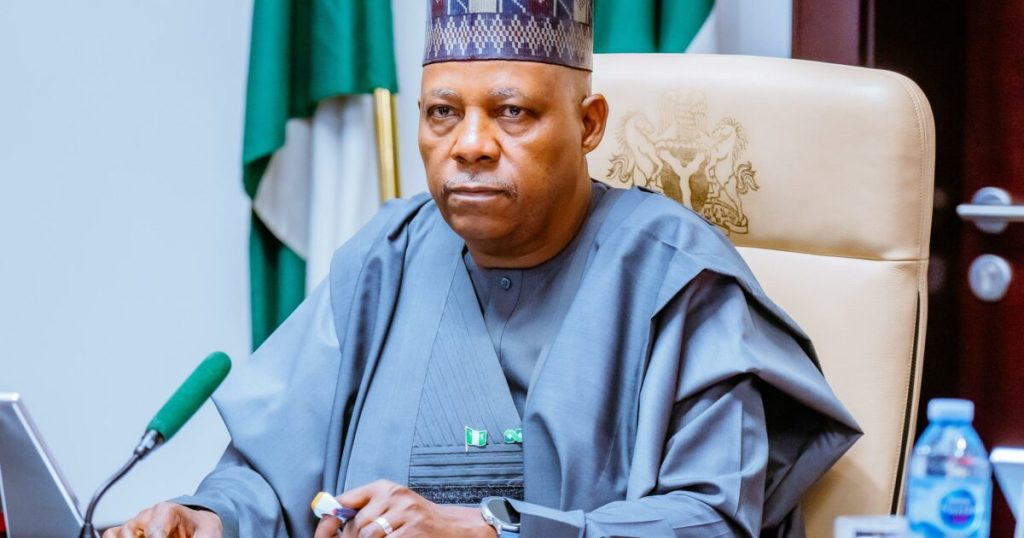Nigeria’s National Economic Council (NEC), chaired by Vice President Kashim Shettima, convened its first meeting since President Bola Tinubu reignited the debate on the establishment of state police. The meeting, held behind closed doors in Abuja, brought together the 36 state governors, the central bank governor, and key ministers to address pressing economic concerns and potentially delve into the politically charged issue of state-level policing. President Tinubu’s recent pronouncements on the need for state police to combat escalating insecurity across the nation have added a layer of complexity and anticipation to the NEC’s deliberations.
The NEC, constitutionally mandated to advise the president on economic policy, serves as a vital platform for coordinating national economic strategies. While primarily focused on economic matters, the council often grapples with broader governance challenges that impact the nation’s economic well-being. Security concerns, particularly the rise in violent crime, kidnappings, and insurgencies, have become a significant impediment to economic progress, prompting calls for a more decentralized security architecture.
President Tinubu’s meeting with Katsina state delegates, where he explicitly stated his commitment to reviewing security measures and creating state police, has injected renewed urgency into the debate. The President’s assertion comes at a time when the nation’s security forces are increasingly stretched thin in their efforts to contain widespread violence and instability. The NEC meeting, therefore, provides a critical opportunity for state governors to engage with the federal government on this highly sensitive and potentially transformative issue.
The concept of state policing has long been a source of contention in Nigeria. While proponents argue that it would enhance local security responsiveness and address the unique challenges faced by different states, critics express concerns about the potential for political manipulation and abuse of power by state governors. The fear is that state police forces could be used to suppress dissent, target political opponents, or exacerbate existing ethnic and religious tensions. Finding a balance between the need for improved local security and the imperative to safeguard democratic principles will be a crucial challenge for policymakers.
Previous attempts to decentralize policing powers have stalled due to these deep-rooted concerns about political interference and the potential for escalating violence. The current political landscape, however, marked by heightened insecurity and a renewed focus on local security needs, may offer a window of opportunity to revisit the issue. The NEC meeting provides a platform for open dialogue and negotiation between the federal government and state governors, aiming to find a mutually acceptable framework for state-level policing that addresses both security concerns and safeguards against potential abuses.
The outcome of the NEC deliberations on state policing will have far-reaching implications for Nigeria’s security architecture and its overall governance structure. Striking a balance between the legitimate security needs of the states and the need to prevent the politicization of policing will be a delicate balancing act. The NEC meeting provides a crucial forum for stakeholders to engage in constructive dialogue, explore potential solutions, and potentially pave the way for a more effective and responsive security apparatus that addresses the complex challenges facing the nation. The success of any proposed state policing model will hinge on robust oversight mechanisms, transparent accountability frameworks, and a commitment to upholding democratic principles and protecting human rights.














